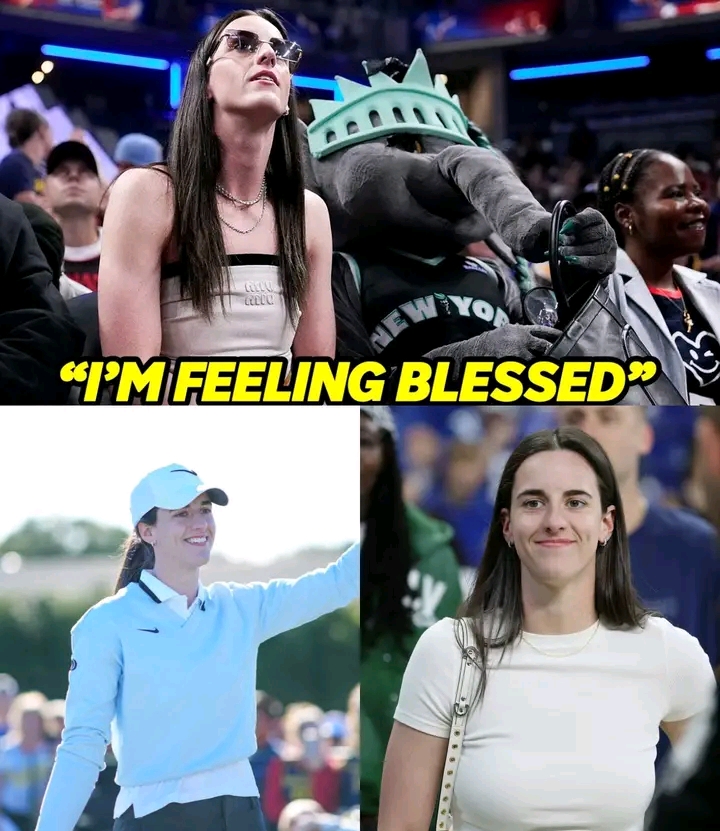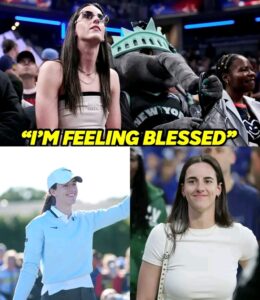
More Than a Rookie: WNBA Players Discuss Caitlin Clark’s “Inhumane” Pressure and Actual Effects BB Posted by She is definitely a phenomenon.
Few rookies, male or female, have ever stepped into the arena with as much attention as Caitlin Clark in the history of professional sports. She has been hailed as a one-woman movement and a generational talent who has the potential to elevate an entire league, so she is more than just a player. There is a much more important and nuanced discussion that gets lost in the din of the sold-out crowds and the never-ending cycle of broadcast analysis. What are the real opinions of the women who compete with her on the court—the seasoned pros, the other celebrities, and the fierce rivals?
In a series of incredibly open interviews, those players are revealing their innermost thoughts for the first time. On certain issues, they speak as one, but on others, their voices are boldly honest and nuanced. Their portrayal differs from the straightforward media story of a single hero. It’s a story of great respect, deep compassion for a “inhumane” burden, and an uncomfortable, critical analysis of the implications of her fame for the WNBA’s past, present, and future.
An acute awareness of the crushing weight on Clark’s shoulders is the first and most recurring theme. Speaking empathetically, one player called the nightly demands made of her “inhumane, really.” The 22-year-old is denied the grace of an adjustment period in the harsh calculus of public opinion. The player went on to say that it is unfair to expect people to be flawless and to never have bad games or nights. “People start to doubt things if she doesn’t go eight for ten from three.” It’s simply unjust.
Others agree, highlighting the harsh and frequently disregarded transition from college to the professional leagues. With 144 of the world’s top players, the “W” league offers a quantum leap in skill, speed, and physicality. However, Clark is being evaluated as a finished product rather than as a novice trying to find her footing. Her peers observe this and the poise with which she responds to it. One competitor commented, “I’m sure she has like a great team around her,” and said, “I would just tell her like, ‘I’m proud of you, keep doing your thing.'”
At the same time, nobody disputes her profound influence on the game. Along with other dynamic rookies like Angel Reese, she is quickly credited by players for introducing “a whole bunch of new eyes” to the sport. In their own workplaces, they witness the tangible outcomes. One star said, “To be at the Fever Game and for the game to be sold out… I know it’s been close” for each subsequent game. This is a real change that benefits all of the league’s players, not just a media fabrication.
Unquestionable, astounding skill is the cornerstone upon which that excitement is based. Her coworkers discuss her game with the profound respect of a fellow craftsperson. They talk about her ability to make “the extraordinary ordinary,” her incredible shooting range, and her historic 30-point performances. One coach referred to her as a “future Hall of Famer,” while another opponent said that what’s “so underrated about her is her passing.” According to one rival, she is “really hard to guard.”
But it’s precisely because of this respect that she has a “target on your back.” A veteran who was once selected first herself provided a crystal-clear explanation of the “welcome to the league” mentality. She said, “You were a top dog in college when you entered the league.” “And now the professionals you are competing against want to prove to you why they are superior.” This isn’t malicious. It’s not jealousy. The league was created by the fierce competition. Legends like Diana Taurasi—another figure who was praised for “talk[ing] trash” and having “the game to back it up”—went through the same ordeal. The best must put you to the test if you want to be regarded as the best.
However, at this point, the discussion shifts from the hardwood to the much more sensitive topics of race, media, and culture. There have been some difficult and unpleasant side effects associated with the “Caitlin Clark Effect.” A number of athletes expressed their candid opinions about the media’s exclusive focus and how it affects a league with a large Black population.

One player said in a heavy voice, “I’m going to be very honest.” “I feel terrible because I’ve seen so many talented players of color who never received the recognition they deserved.” She contends that this is the source of the conflict. “Hard feelings are created when you continuously single out one player.” She cited the “Athlete of the Year” cover of Time magazine as an excellent illustration. “Why couldn’t they have declared the WNBA the league of the year and featured the entire league on that cover?”
Another participant went even further, confronting the “racism” issue directly. According to her, Clark has been unintentionally included in a culture war, and some new “fans” have started using her as a “representation of their racism.” She clarified, “I don’t think it’s the Fever fans.” “I think it’s the people who wanted Caitlin Clark to be a certain way. They became fans of Caitlin Clark assuming that, and then they realized that, ‘oh no, she’s actually not, she’s actually not racist.'” According to this perspective, Clark finds herself in the middle of social conflicts that she never requested to participate in.
Additionally, every mistake is magnified by the intense scrutiny, which creates a “tough” environment where, as one player put it, “you don’t even get to respond” without coming across as “defensive.” She described how, while trying to lighten the mood at a press conference, she made a “really bad joke” about “Team Clark,” only to have it blow up in a serious moment. It’s a clear illustration of the high-stakes, high-tension environment that Clark and her peers currently live in, where every word matters. Nevertheless, a final, potent theme that comes through all the chaos, pressure, and controversy is solidarity. The “W” has a true sisterhood. The players who fiercely compete against her are also the ones who support her success and survival.
One player said kindly, “I hope she still knows that there is a community of women around her who want her to succeed.” The message is unmistakable: tearing down others is not the path to true greatness. She went on to say, “Not everyone wants someone to fail.” “Because you’re not great if you want someone to fail, as if you’re jealous.”
Athlon Sports’ $20 million property owned by Michael Jordan is involved in Caitlin Clark’s offseason move. This is how the Caitlin Clark phenomenon actually happened. It’s not clean, and it’s not easy. It is a complicated tapestry of professional pride, economic advancement, “inhumane” pressure, generational talent, and a long-overdue, agonizing examination of race and media coverage. All of it is visible to her peers, the women who really know. As they all “take this league to new heights,” they will fiercely defend her, relentlessly challenge her, and ultimately stand by her side.





